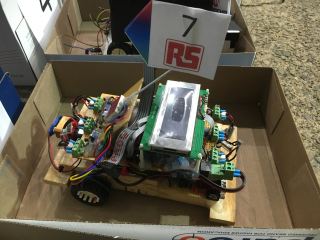Next executive challenge … co-opting the cobots
By Gusti Coetzer, director at Signium Africa (previously Talent Africa)
Future-spotting is a key strategic challenge for senior management. For those taking a forward-view, a new priority has emerged … how to react to the rise of the robots.Science fiction is fast becoming reality in manufacturing and service industries in the developed world. Businesses in Africa will have to follow suit if they hope to become competitive.
A 2016 study by the International Federation of Robotics says the number of robots sold globally with double to 400 000 units by 2018, with 70% of the demand coming from China, Japan, USA, South Korea and Germany.World Bank research says Africa has two industrial robots per 100 000 manufacturing workers and massively lags the developed world, but cannot ignore the trend.Jobs are a major focus point.
A widely quoted 2016 study by Daron Acemoglu (MIT) and Pascal Restrepo (Boston University) suggested bots would merely trigger the creation of new, better jobs.This year, they finished the first quantitative survey of job losses using real-world data. This less positive study shows bots cost 670 000 US manufacturing jobs between 1990 and 2007. In one local economy the academics scrutinised, each bot cut 6.2 jobs per 1000 workers.Acemoglu and Restrepo say US bot sales are expected to quadruple, so job losses could mount.Yet many companies that invest in robotics say they are hiring more as higher productivity drives company growth. People move to tasks with high value creation. Job losses at less automated competitors are hard to assess, however.Should executives worry? As blue-collar jobs decline, will executive numbers be decimated by machines gunning for top jobs?
Not likely …Any review of the literature confirms that humans always outscore machines when it comes to thinking, planning and decision-making. We can think ahead.
They can’t, however today artificial intelligence needs to be taken into account. It is arguably a “which came first, the chicken or the egg”?One commentator noted: “We can map out a series of steps that can lead us to a certain goal. This is what robots cannot do. They lack the ability to plan ahead of time.”Machines are faster, more precise, more consistent and more productive. Pressure on repetitive manufacturing jobs is already evident. But service sectors are not immune.One robotics application now flips burgers to consistent quality levels, with big implications for college dropouts who assume they can always get a job flipping burgers.The lesson is simple.
A good education and skills are essential for humans.In a paper to the International Management Conference in Bucharest, D.M. Florian noted: “Studies suggest robots are increasing our wages, not stealing our jobs, though there has been a decrease in the number of positions at some companies. However, the need for more qualified positions has gone up…“Technology has been proved to make humans smarter… A machine has no ability to assess situations and cannot look at a set of transactions and provide an overall picture of what they could mean.”Florian concluded: “Robots will only be able to support the problem-solving structure. They cannot replace it.”Many experts say man-versus-machine simplification is off the mark.
Man with machine is more probable. Growing sales of collaborative robots or cobots are reported worldwide.Here, one area of development is wearable robotics or exoskeletons that augment human capabilities with technology. ABI Research says about 40 R&D groups currently work in the field – the basis for a “$2-billion global market by 2025”.Military and healthcare applications are focus areas. So are industrial uses. Many firms are in the market for “motorised muscles” for heavy lifting or for sensor-actuated exoskeleton suits that “protect and serve” humans during dangerous work.In all cases, a trained and skilled person is needed to operate the wearables, hinting at a future in which humans work with cobots in many areas.Unskilled employment may therefore fall. You need skills to get the best out of cobots or “smart overalls” representing a big capex investment.The highly trained, well-educated cobot co-worker will become a major contributor to productivity and profit.
Executives will still find ‘man’ management is a key part of their task, but a new managerial style may be needed in this high-skill, high-knowledge environment.A very human, empathetic approach will be more appropriate than ‘command and control’. Ironically, the cobots could bring out our human side.
Website: www.signium.com
Annual Robot Race
Robots Race it out in Tshwane
Pretoria, South Africa, 29 May, 2017 - Global industrial and electronics distributor RS Components, are one of the sponsors for the fifth EECE Race Day at the University of Pretoria this year. The Race Day offers third year microcontroller students at the department of electrical, electronic and computer engineering the opportunity to showcase their practical skills and to put theory into practise.
The event, now in its fifth year, originated at the end of 2012 as the brainchild of Professor Tania Hanekom, who at that stage had already been the lecturer for the third-year Microcontrollers module EMK310 for eight years. The idea was to create a learning environment that would foster an appreciation for the complexities of the design and implementation of a microcontroller-based engineering system.
Engineering students are competitive by nature and the notion of a competition was an appealing approach to capitalise on this characteristic while having fun. In essence, students design, construct and test an autonomous, line-following robot vehicle, but the snag is that the track consists of a criss-cross pattern of coloured lines. Line-follower robots as presented on the internet invariably follow black on white or white on black lines; therefore, the implication is that students need to develop the system from first principles.
By levelling the playing field through a number of standardised components (for example, the motors), excellence is encouraged, since students have to use their ingenuity to devise strategies that will give their car an edge over those of their competitors.
RS Components sponsored Raspberry Pi CanaKits for one of the winning teams at the event as well as various components to upgrade the gantry. Raspberry Pi is a credit-card size computer board that is used to teach computer coding and can be used in robotics and various PC type functions like running a media centre. Mellisa Naidoo, Head of Marketing at RS Components SA, explained that the company has taken a long term view on education and supporting future engineers, hence our support for the TUKS Race Day for the third year running.
“Our aim is to remove the barriers of learning and innovation by providing access to products, tools and resources for engineers and students so that they can experiment, design and create solutions to solve real world challenges.”
One of the latest solutions from RS is the free-of-charge ‘ToolBox App’ available for use on iOS devices like the iPhone and iPad, as well as for Windows-based PCs. The Toolbox App provides an easy access point to an extensive range of functions including popular electronic reference materials and a multitude of calculation and conversion tools in an easy-to-use format for electronics design engineers, hobbyists and students. In addition to the reference tools and calculators, Toolbox offers the latest news on technology from the DesignSpark community, including 3D models of thousands of products. For more information on the Toolbox App and free software downloads go to www.designspark.com
-Ends-
About RS Components
RS Components is the market leader in the high service level distribution of electrical, electronic, mechanical, tools and industrial products. Operating in 26 countries whilst serving a further 100 through third-party distributors, RS serves every sector of industry in the procurement of their products relating to maintenance, repair, operations, low volume production, research and development. With over 500 000 products across 2500 leading brands, the company is committed to ensuring that their 1,5 million customers have fast access to a broad, as well as deep range, of products and technologies, all under one roof.RS’s customers, whether ordering single or multiple items, experience a quick, easy, secure, painless and cost effective process. The RS catalogue, available at za.rs-online.com, offers full colour pictures with extensive clear product specifications. Free access to thousands of datasheets ensures the correct product choice. Order placement is easily facilitated through za.rs-online.com, the call centre, e-mail, fax and trade counter. Locally held stock is delivered to customers within 24 hours, and products held internationally, within four to six working days.
For more information, please visit the website at za.rs-online.com



